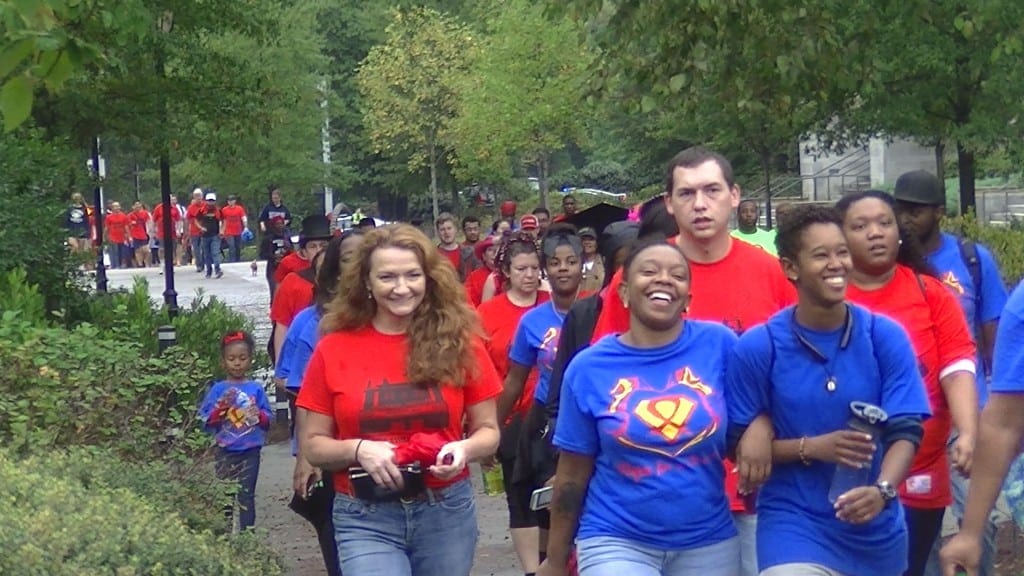AIDS Athens is only $5,000 short of its fundraising goal with two weeks left in this year’s campaign. More than 200 supporters braved bad weather on Saturday to walk in the annual AIDS Walk, a cornerstone of the organization’s effort to support the Athens area that has an estimated 750 individuals living with HIV. Here are seven other things you need to know about AIDS Athens:
1. AIDS Walk is the organization’s major fundraiser.
AIDS Walk is on track to raise $25,000 again. This represents about 25 percent of the organization’s annual expected donations. This year, 387 people registered to participate.

2. Donations support free HIV testing.
AIDS Athens spends a large portion of its funds providing anonymous HIV testing. No blood or needles are necessary. An oral swab method is used to provide results in about 20 minutes. According to the organization, the test is over 99 percent accurate in detecting HIV antibodies.
3. Donations support a host of other services, too.
Housing is a major concern of the organization. AIDS Athens assigns personal advocates who work with clients to secure housing units. Other support services include providing uniforms and school materials, meal delivery, and support groups who help alleviate stress of HIV-positive clients and their families.
4. AIDS Athens annually publishes financial statements of its expenses.
AIDS Athens spent more than 98 percent of its revenue on program services, according to the organization’s 2013-2014 report. Federal grants pay for employees and HIV treatments.
5. The organization is on the move.
AIDS Athens will relocate to the Athens Homeless Resource Center on North Avenue in 2016, the result of a partnership with the Athens Nurses clinic. The new facility will help provide primary care for HIV/AIDS-infected individuals.

6. HIV/AIDS is a major problem in the South.
The Southeast represents 50 percent of new HIV infections and reports higher mortality rates. Georgia ranks sixth in the number of people living with HIV/AIDS. Athens has one of the lowest rates of infection in the state at 161 per 100,000 while Fulton County’s rate is nearly 10 times higher. In total, it is estimated over 50,000 Georgians are afflicted with HIV.
7. Its Executive Director has tripled AIDS Athens revenue during her tenure.
Before Olivia Long joined AIDS Athens in January 2007, the organization’s budget peaked at $300,000. In the 2013-2014 fiscal year, Long oversaw a budget of over $1 million.







